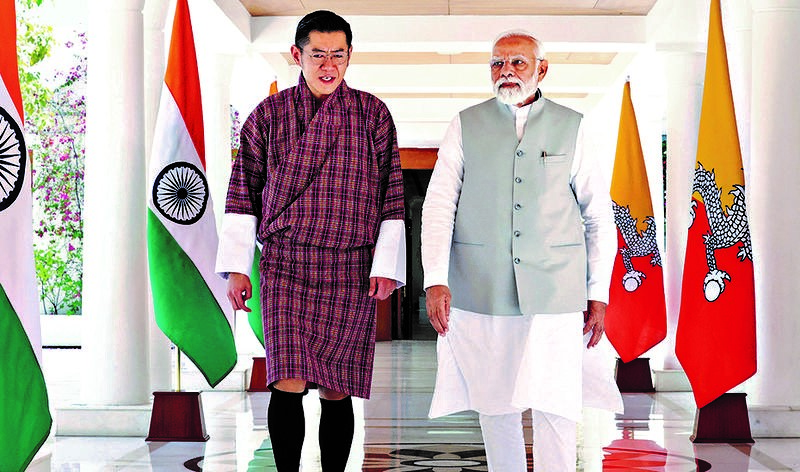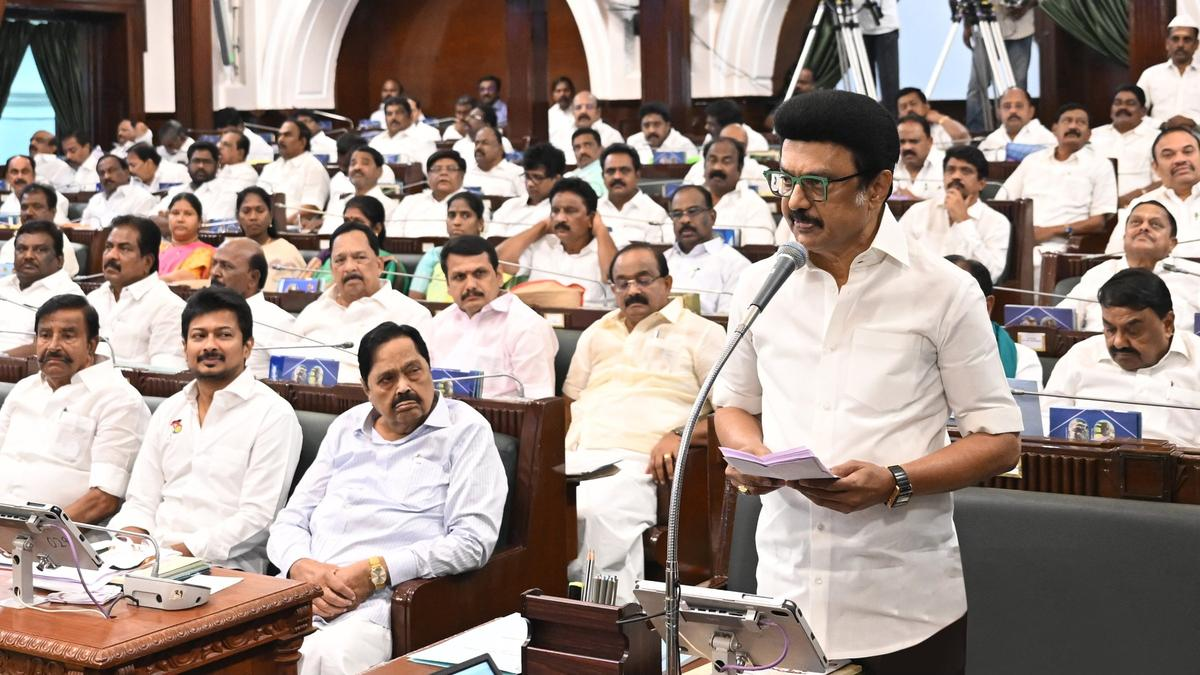Description

Disclaimer: Copyright infringement not intended.
Context
- His Majesty Jigme Khesar Namgyel Wangchuck, the King of Bhutan called on the President of India and the Prime Minister of India.
Details
Meeting with the President
- President said that India deeply values multi-faceted and unique partnership with Bhutan.
- As Bhutan’s largest development partner, India is proud to support projects in Bhutan in sectors like health, education, agriculture, infrastructure, digitization and skill development. She assured that India’s development partnership would continue to be guided by the priorities and aspirations of Bhutan.
- The President noted that this year Bhutan is set to graduate from the Least Developed Country (LDC) category and India would remain a reliable partner of Bhutan on this journey.
Meeting with the Prime Minister
- Both discussed the ‘entire gamut’ of ties and progress in boundary talks between China and Bhutan, particularly about Doklam.
- New Delhi has reiterated its position that any questions over the trijunction between India, China and Bhutan would be resolved “trilaterally”.

Background of relations
- India and Bhutan share unique and exemplary bilateral relations, which are based on mutual trust, goodwill and understanding. Formal diplomatic relations between India and Bhutan were established in 1968.
- The basic framework of India-Bhutan relations is the Treaty of Friendship and Cooperation signed in 1949 between the two countries, which was renewed in February 2007.
- The bilateral ties have been advanced by regular high-level exchanges between the two countries.
- India re-negotiated the 1949 treaty with Bhutan and signed a new treaty of friendship in 2007.
- The new treaty replaced the provision requiring Bhutan to take India's guidance on foreign policy with broader sovereignty and not require Bhutan to obtain India's permission over arms imports.
Trade and Economic Ties
- India is Bhutan’s largest trading partner.
- In 2020, bilateral trade accounted for 82.6% of Bhutan’s total trade.
- Imports from India accounting for more than 77.1% of Bhutan’s total imports.
- Bhutan’s exports to India constituted 90.2 % of its total exports.
- The revised Bilateral Agreement on Trade, Commerce and Transit between India and Bhutan came into effect in 2017, and would be valid for ten years.
Development Partnership
- India has been extending economic assistance to Bhutan’s socio-economic development since the early 1960s when Bhutan launched its Five Year Plans.
- For the 12th Five Year Plan, India’s contribution of Rs. 4500 cr. will constitute 73% of Bhutan’s total external grant component.
- At present over 82 large and intermediate projects and 524 Small Development Projects/HICDPs are at various stages of implementation in Bhutan.

Hydropower Cooperation
- Mutually beneficial hydro-power cooperation with Bhutan forms the core of bilateral economic cooperation.
- The 720 MW Mangdechhu, 1200 MW Punatsangchhu-I, 1020 MW Punatsangchhu-II in Inter-Governmental mode are under various stages of implementation.
Cultural ties
- Under the ITEC program, about 300 slots have been utilized annually by Bhutan for upgrading administrative and technical skills of government officials and private sector employees in Bhutan.
- A number of Bhutanese pilgrims travel to Bodh Gaya, Rajgir, Nalanda, Sikkim, Udayagiri, and other Buddhist sites in India.
- Almost 4000 Bhutanese students are enrolled in Indian Universities.
Military cooperation
A 2,000 strong Indian Military Training Team (IMTRAT) is permanently based in western Bhutan to train the Royal Bhutan Army, while other units regularly cooperate with the Royal Bhutan Army.
Bhutan’s Significance to India
- Bhutan shares border with four Indian States: Assam, Arunachal Pradesh, West Bengal and Sikkim.
- Bhutan serves as a buffer between India and China.
- Security of Bhutan’s present borders especially its western border is very important for India.
- Bhutan provides a market for Indian commodities and is a destination for Indian investment.
- Bhutan is a rich source of hydropower.
- A politically stable Bhutan is important to India.
Challenges
- An unstable and restive Bhutan can provide a safe haven to anti-India activities and anti-India militant groups.
- There have been instances when India has been accused of meddling in Bhutan’s internal affairs.
- China’s continuous claims to important border areas such as Chumbi valley and Doklam and its continuous efforts for establishing strong diplomatic and economic relations with Bhutan have been continuous source of concern for India.
- Bhutanese parliament decided not to endorse the MVA plan.
Way Forward
- India needs to step up efforts to publicize the benefits that accrue to Bhutan from Indian projects.
- India continuously needs to explore new areas of cooperation with Bhutan.
- India should try as much as possible to remain out of Bhutan’s internal matters, though it can act as a mentor.
- Safety of Border from China is a concern for both nations. Therefore, both sides need to work together on this issue.
- Being neighbours, it is necessary that both nations continuously recognise value of each other.For this, regular high level visits from both the sides are necessary.
|
PRACTICE QUESTION
Q) India and Bhutan share unique and exemplary bilateral relations. Analyse this statement in the context of trade and economic aspects. (250 words)
|

https://www.pib.gov.in/PressReleasePage.aspx?PRID=1913620















